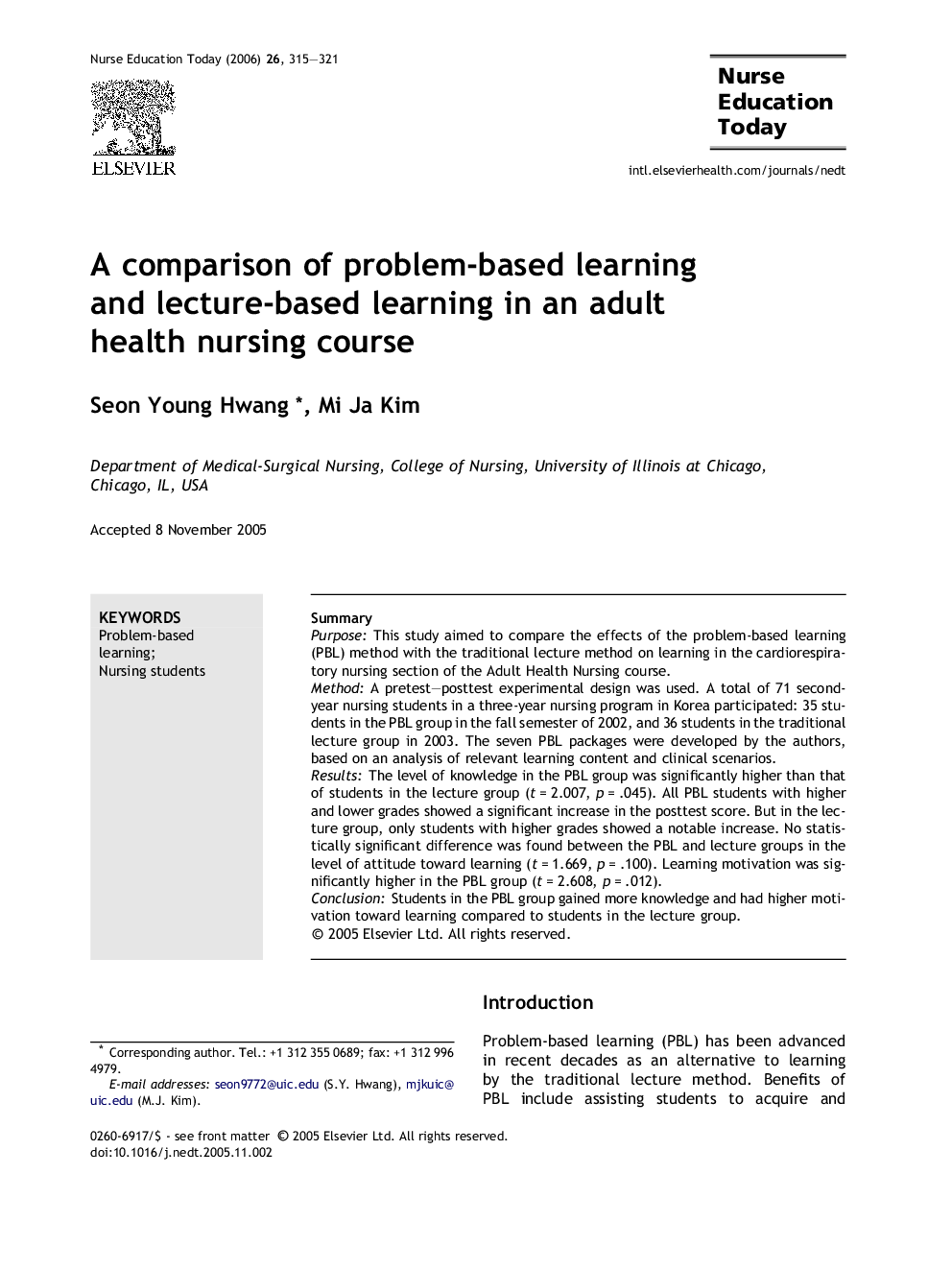| Article ID | Journal | Published Year | Pages | File Type |
|---|---|---|---|---|
| 369704 | Nurse Education Today | 2006 | 7 Pages |
SummaryPurposeThis study aimed to compare the effects of the problem-based learning (PBL) method with the traditional lecture method on learning in the cardiorespiratory nursing section of the Adult Health Nursing course.MethodA pretest–posttest experimental design was used. A total of 71 second-year nursing students in a three-year nursing program in Korea participated: 35 students in the PBL group in the fall semester of 2002, and 36 students in the traditional lecture group in 2003. The seven PBL packages were developed by the authors, based on an analysis of relevant learning content and clinical scenarios.ResultsThe level of knowledge in the PBL group was significantly higher than that of students in the lecture group (t = 2.007, p = .045). All PBL students with higher and lower grades showed a significant increase in the posttest score. But in the lecture group, only students with higher grades showed a notable increase. No statistically significant difference was found between the PBL and lecture groups in the level of attitude toward learning (t = 1.669, p = .100). Learning motivation was significantly higher in the PBL group (t = 2.608, p = .012).ConclusionStudents in the PBL group gained more knowledge and had higher motivation toward learning compared to students in the lecture group.
